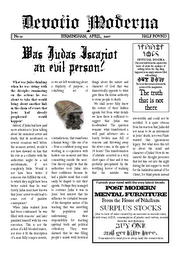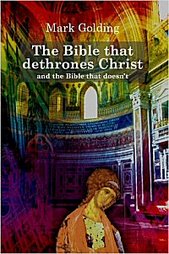There is a survival of life in the jungle that is breathtakingly exotic and abundant, that resonates with sounds, colours and smells we may equate with song, beauty, perfume. But there is a darker violent aspect of survival in the jungle that our imagination is perhaps not so eager to articulate in the same glowing terms.
We have inherited a language full of peculiar words, to compensate for this contradiction of aspect, which we use to blur the contradictions, to elevate our identity in glowing terms using abstract words like love and beauty.
The jungle is not beautiful at all though, it is a chaotic, mechanistic life system, where the survival of the fittest is the unwritten law. Where atavisms pre-determine the selections made within a short span of life reducing choice to nothing more meaningful than the maths of probability. Where life has no meaning other than to function as a living organism to serve no purpose other than being available as a product in the automated food chain and as a protector of territory.
This description is not dissimilar from the life of modern man where another jungle exists that has been created by a military industrial mindset directed by the archetypal territorial warrior who sees thousands of souls as expendable. Expendable in an economic system that maintains a food chain for the rich and just chains for the poor. Here people are statistics, whose probability of importance is expressed as a computation in documents that are sexed up to preserve the flimsy appearance of transition from beast to human, from a green jungle to a concrete replica. The Iraq dossier is part of humanism's attempt to re-classify the wild animal as human. How insulting to God it is that animals should have the audacity to call themselves 'human'.
The difference between jungle law and cultural law is a difference in language only. Sophistry barely makes any difference. So much so we use the language of art like the language of law to crudely justify behaving like animals so that a distinction can be made between the symbols that set us apart. But it is a crude distinction because the language relies on crude and meaningless abstraction.
This confusion has no lasting beauty and no future.
A consequence of identifying with nature, of looking for an identity based on obscure symbols and indefinite origins, is the emergence of a compensating definitive language, a legal system, to distinguish humans from animals, to bring order out of chaos ‘ordo ab chao’ by codifying behaviour, that makes the transition from animal to human, from sinner to saint, from wild instinct to consciousness of the divine, a visible proof of difference.
In the process new weapons also emerge to combat evil, to combat those who resist the transition, and the animal not only completely fails to articulate the divine mystery of being human but regresses to a state that is an embarrassment to the whole of creation. The regress is told as a narrative of ancient history which repeats itself ad infinitum into the modern age. We have inherited the conflict of personality in the form of ancient customs, beliefs and practices, which State and Church conform to with predictable outcomes.
As a consequence we think, we pray, we speak and we act out a language of the wild, which has no beauty.
But God who is always beautiful in Christ, holds out a hand of salvation and hope that one day we would conform to an identity that is true, which He has shown us personally in the life and words of Jesus Christ.
Sunday, May 17, 2009
Subscribe to:
Post Comments (Atom)






No comments:
Post a Comment